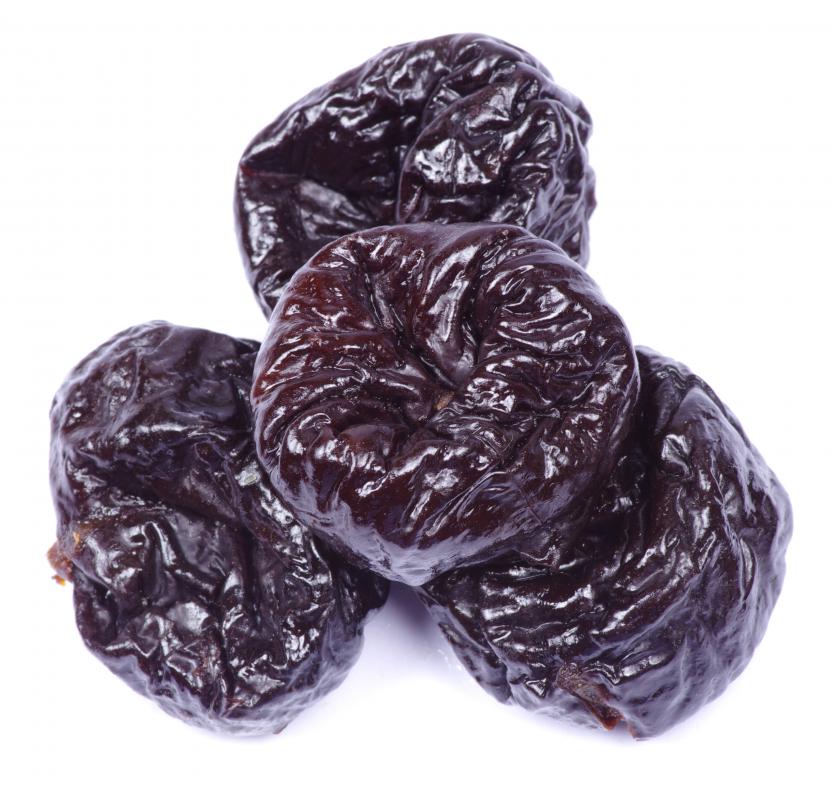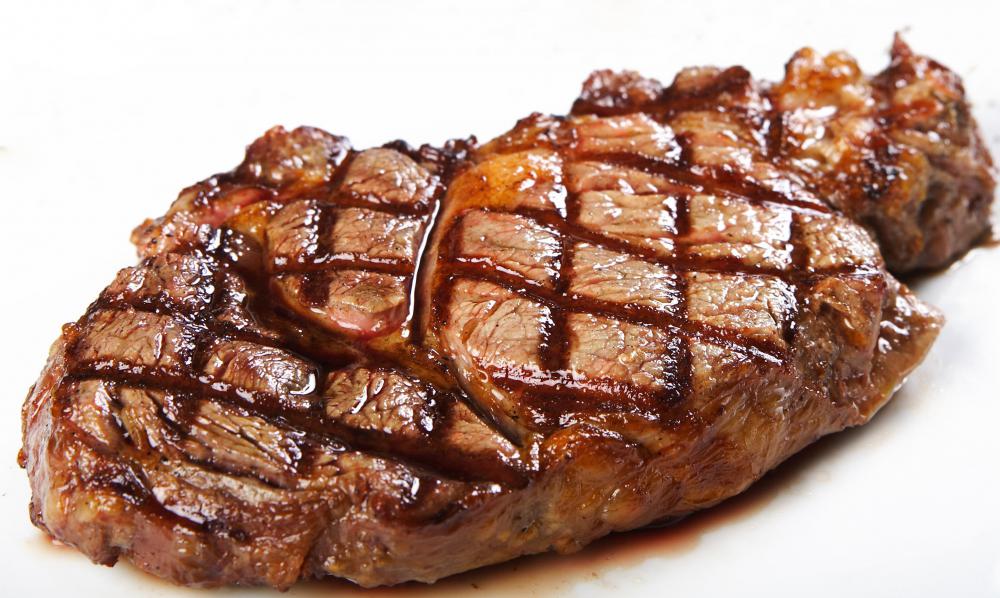At WiseGEEK, we're committed to delivering accurate, trustworthy information. Our expert-authored content is rigorously fact-checked and sourced from credible authorities. Discover how we uphold the highest standards in providing you with reliable knowledge.
How Much Iron Should be in my Diet?
Iron is a mineral that is found in every cell of the human body, so it is important to make sure you are getting enough. The U.S. Recommended Daily Allowance (RDA) for adults is 8 mg per day for men and 18 mg per day for women. However, this is a general guideline; teenagers and women who are pregnant may need higher amounts. It is possible to have too much iron in the body, so always check with a doctor before taking supplements.
This mineral performs a vital function in the human. It's necessary for the production of hemoglobin and myoglobin, which are are two blood proteins that carry oxygen to cells. There are two kinds of iron typically found in food: heme and non-heme. The heme type is more easily absorbed than the non-heme, and is found in most meats, but especially red meat and organ meat such as liver. The non-heme type is found in fruits and grains, including prunes and raisins, green leafy vegetables, beans, and whole grains such as brown rice, and is harder for the body to absorb and use.

Low levels of iron in the body can often lead to iron deficiency anemia. Fatigue is the most common symptom of this type of anemia, because cells are not receiving enough oxygen. It can be caused by not eating enough iron, but also by being unable to absorb it properly. A doctor can diagnose anemia with a blood test.
There are several different factors that can affect how well the body absorbs iron. Vegetarians are at higher risk for anemia because they primarily consume the non-heme type, which is harder for the body to absorb. Certain medications, such as tetracycline, may also interfere with absorption. It is thought that drinking tea may also interfere with absorption, but consuming vitamin C can enhance the body's ability to absorb this vital nutrient.

People can supplement their iron intake by taking pills, but this should always be done under a doctor's supervision, after the cause of the anemia has been determined. Consuming too much iron can be dangerous, and in some cases fatal. The main signs of overconsumption include fatigue, nausea and vomiting, dizziness and headache, shortness of breath, and a gray tint to the skin. Anyone experiencing these symptoms should stop taking their supplement and contact their physician immediately.
AS FEATURED ON:
AS FEATURED ON:














Discussion Comments
@googlefanz -- I'm not wisegeek, but I can answer your question. Although it is possible to take iron vitamins safely during pregnancy, you really should only do so with a doctor's supervision.
First, as you said, there are some really bad side effects to having too much iron in your body, and that's the last thing you want when you're pregnant.
However, another reason to consult your doctor is because they will be able to tell you exactly what is causing the anemia, so you can fix it in the long term rather than just relying on the Band-Aid of iron pills.
And of course, you should be seeing a doctor regularly throughout your pregnancy anyway, so that shouldn't be too much of an issue. You'd be shocked at how many women just start downing the supplements when they get pregnant though, which can be so dangerous both for the mom and the baby.
So, the long and the short of it is: yes, you can take iron supplements during pregnancy, but only in low doses and only with a doctor's supervision.
Is it OK to take an iron pill if you're pregnant? I am trying to get pregnant, and I keep hearing all these horror stories about women getting terrible anemia in their pregnancy.
I am already a little anemia-prone (I went through a really bad patch in college and ended up having to take iron vitamins for about a year), so I'm really wondering about this.
I would assume that there has to be some kind of treatment available for these women with anemia, but I've also read that iron pills are really strong, and can do some crazy things to your body.
So what's the answer, wisegeek?
So how exactly does a does a doctor determine if you have iron deficiency? I'm assuming they just do some sort of blood test?
I ask because for the past weeks I've just been feeling really run down. I can't wake up in the mornings, and my skin looks really pale (though not clammy). I also think that I'm starting to bald.
I know, sounds like your normal mid life crisis kind of thing...except I'm 23. So as you can imagine, I'm a little worried. Do you think that I should go to a doctor and get some iron vitamins, or should I just hold off and see if things get better?
Oh, and if anybody's been through this before, I would very much appreciate any insight or experience that you could share with me. Thanks.
Post your comments